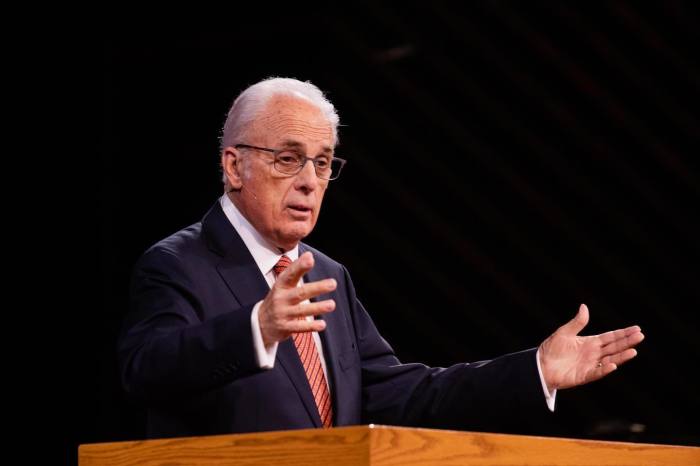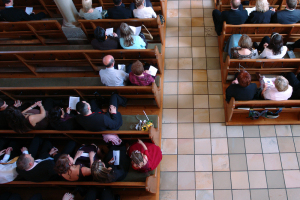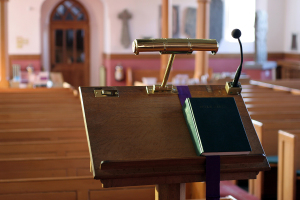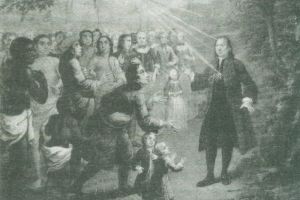John MacArthur: ‘I wouldn’t fight for religious freedom because I won’t fight for idolatry’

While studies show most Americans support religious freedom as a core component of American cultural values, Pastor John MacArthur of Grace Community Church in Sun Valley, California, said he doesn’t support it because it allows idolatry.
During his State of the Church address Wednesday, which replaced his Shepherds’ Conference for men in church leadership that was postponed due to “ongoing litigation" and "threats" from the state, MacArthur urged evangelicals to stop forming alliances with non-Christian groups to promote religious freedom because they don’t need it.
“The Gospel offends the sinner and seeks to break the sinner’s comfort and contentment by bringing him into stark realization of the eternal judgement of God. Evangelicals have become like Peter. They are looking for alliances with Satan that they think somehow can aid the Kingdom,” MacArthur said.
“I told our congregation a few weeks ago that I could never really concern myself with religious freedom. I wouldn’t fight for religious freedom because I won’t fight for idolatry. Why would I fight for the devil to have as many false religions as possible and all of them to be available to everyone?” he asked.
The megachurch leader, who has famously challenged local government and state officials over the right of his congregation to have in-person services during the coronavirus pandemic, noted that even with religious freedom Christians have continued to be the target of “the hostility of sinners.”
“Well, people would say that’s a terrible thing to say. What about Christianity? Christianity advances whether there is religious freedom or not. And there’ll always be religious freedom for all the lies. Every false religion is going to be free because it’s linked to the kingdom of darkness that operates in the world. And Christians, whatever the label of religious freedom might be in its broadest sense, Christians are always the target even with religious freedom, of the hostility of sinners,” MacArthur said.
“The Apostles turned the world upside down with no help from it. No social action. No alliances. The evil kingdom of darkness hates what God loves and loves everything that God hates, and the kingdom of darkness is never a friend to the light,” he continued. “Even rulers have exchanged the truth of God for a lie. … They function under the liar Satan himself who [is] the liar and father of lies. There is absolutely no reason for us to make any alliance with him,” he said.
To support his argument, MacArthur cited several Scriptures which he said spells out the Church’s mandate, including Ephesians 5: 5-8.
“For of this you can be sure: No immoral, impure or greedy person—such a person is an idolater—has any inheritance in the kingdom of Christ and of God. Let no one deceive you with empty words, for because of such things God’s wrath comes on those who are disobedient. Therefore do not be partners with them. For you were once darkness, but now you are light in the Lord,” the NIV version of the Scripture says.
“Do not be partakers with them,” he said, repeating verse 7. “You have no alliance with the kingdom of darkness.”
A 2019 study from the Becket Fund for Religious Freedom, a nonprofit, public-interest law firm dedicated to protecting the free expression of all religious traditions, showed that a majority of Americans strongly support religious freedom even if the views expressed are deemed “discriminatory.”
The data highlighted in Becket’s inaugural Religious Freedom Index: American Perspectives on the First Amendment show that a majority of Americans support freedom to practice one’s religion at work or in life even if it creates an imposition or inconvenience for others.
“The central finding from this first year’s Index is that broad public support for religious freedom has survived the culture wars. After years of religious freedom being pushed to the center of polarizing debates, rather than reveal a partisan 50-50 split, at 67[%], the Index scored in the upper third on the scale of favorability toward robust religious freedom protections,” Becket said in an announcement to The Christian Post at the time.
“Across dimensions, we saw public support well above 70 percent on many issues, indicating that the concept of religious freedom maintains its place as a core component of American cultural values. The study also found evidence for a preference for a hands-off government approach and support for a culture of accommodation of religious beliefs and practices,” the nonprofit noted.
And despite challenges brought on by the coronavirus pandemic in 2020, the second and most recent Religious Freedom Index: American Perspectives on the First Amendment found that a majority of Americans, more than 60%, said religious freedom remained important.
“While much changed in 2020, religious freedom continues to garner support across demographics through each of the Index’s six dimensions, as reflected by this year’s composite score of 66 on a 100 point scale,” researchers said. “Our findings present a picture of Americans relying on religion and religious freedom to deal with the challenges of 2020, both reactively and proactively.”




























